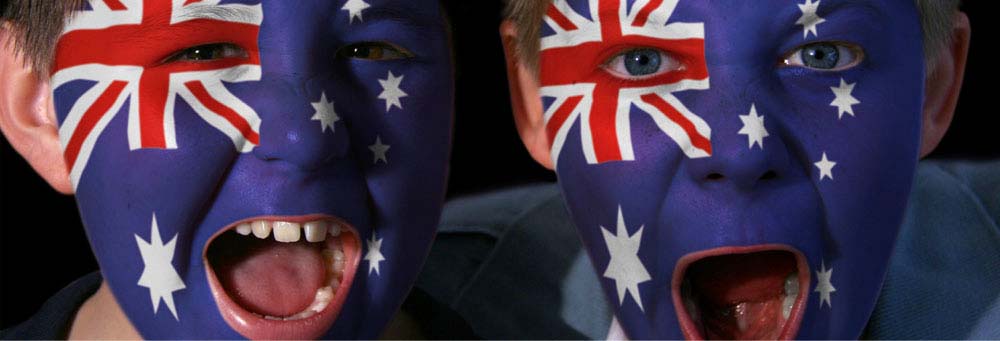Contact Us
KOGARAH OFFICE
Suite 309 – 310, Level 3
13A Montgomery Street
KOGARAH NSW 2217
SYDNEY CITY OFFICE
Ground Floor
54 Martin Place
SYDNEY NSW 2000
Email: solicitors@gmhlegal.com
Phone: (02) 9587 0458
Facsimile: (02) 9587 2936
Refugee Visa
At GMH Legal, our refugee visa lawyers have a wealth of experience in handling all visa subclass types under the Australian Humanitarian Programme. We will prepare your application in a manner that ensures that your best case for protection is put forward and the processing time for your application is kept to a minimum. We have experience in applying under each refugee visa subclass and will assist you in all aspects of the application process, including completing the required application forms, writing your statement of claims and attending your interview with you at the Department of Immigration and Border Protection.
According to the 1951 Convention Relating to the Status of Refugees and its 1967 Protocol, refugees are defined as any person who has left their country and is unable or unwilling to return to it ‘owing to a well-founded fear of being persecuted for reasons of race, religion, nationality, membership of a particular social group or political opinion’.
The United Nations High Commissioner for Refugees (UNHCR) was established in 1951 to provide international protection and seek durable solutions to refugees’ plight.
Refugees are people who have been forced to leave their country of citizenship because they have been persecuted. They often have little or no opportunity to prepare themselves physically or psychologically for their new life.
Refugees often have little idea of which country they will end up in. Refugees who come to Australia often have little or no understanding about Australian society, culture or physical and human geography.
Many have little or no English proficiency and no familial or social connections in Australia. Consequently social isolation is a pronounced feature of refugees’ lives. Refugees come to Australia as permanent residents under the Refugee Special
Humanitarian Program, the off-shore humanitarian component of the migration program. Refugees may also arrive in Australia without having their claims for refugee status assessed or validated. In these instances refugees may apply for asylum on-shore. On-shore applicants are generally referred to as ‘asylum seekers’.
PROTECTION VISAS (SUBCLASS 866)
Protection visas are available to people in Australia, whether lawfully or unlawfully, who seek the protection of the Australian government from persecution in their home country.
Eligibility requirements for the protection visa subclasses are based on the United Nations Convention relating to the Status of Refugees and its1967 Protocol. Under these international agreements, Australia is obliged to give protection to people who are in the Australian migration zone if they fit within the United Nations definition of a refugee – subject to Australia’s own immigration law requirements.
A refugee is defined under the Refugee Convention as a person who:
… owing to well-founded fear of being persecuted for reasons of race, religion, nationality, membership of a particular social group or political opinion, is outside the country of his nationality and is unable or, owing to such fear, is unwilling to avail himself of the protection of that country; or who, not having a nationality and being outside the country of his former habitual residence, is unable or, owing to such fear, is unwilling to return to it …
In addition to the Convention definition, Australian immigration law generally requires that the person:
- makes specific claims under the Convention;
- has not passed through a country en route to Australia where Convention protection was available;
- does not have a legal entitlement to enter and remain in a safe country (other than Australia or their home country);
- undergoes a medical examination and chest X-ray; and
- satisfies character requirements and is not a risk to national security or foreign relations.
If you are refused a Protection visa by the Department of Immigration you may lodge an appeal with the Refugee Review Tribunal (RRT). However, you must lodge your appeal within 28 days of the refusal decision.
This is a permanent residence visa. It allows you to:
- stay in Australia indefinitely
- work and study in Australia
- enrol in Medicare, Australia’s scheme for health-related care and expenses
- access certain social security payments
- apply for Australian citizenship (after you have lived in Australia for four years)
- propose family members for permanent residence
- attend English language classes.
Invoking Australia’s protection obligations under international law is a serious and complex process. These are cases that need to be covered with care, attention to detail, and sensitivity, which is why you should contact one of our expert migration lawyers and migration agents.
REFUGEE VISA (SUBCLASS 200)
This visa is for people who are subject to persecution in their home country and are in need of resettlement. The majority of applicants who are considered under this category are identified by the United Nations High Commissioner for Refugees (UNHCR) and referred to the Australian Government by the UNHCR.
This is a permanent residence visa. It allows you to:
- stay in Australia indefinitely
- work and study in Australia
- enrol in Medicare, Australia’s scheme for health-related care and expenses
- access certain social security payments
- apply for Australian citizenship (after you have lived in Australia for four years)
- propose family members for permanent residence
- attend English language classes.
IN-COUNTRY SPECIAL HUMANITARIAN PROGRAMME VISA (SUBCLASS 201)
This visa offers resettlement to people who have suffered persecution in their country of nationality or usual residence and who have not been able to leave that country to seek refuge elsewhere. It is for those living in their home country and subject to persecution in their home country.
This is a permanent residence visa. It allows you to:
- stay in Australia indefinitely
- work and study in Australia
- enrol in Medicare, Australia’s scheme for health-related care and expenses
- access certain social security payments
- apply for Australian citizenship (after you have lived in Australia for four years)
- propose family members for permanent residence
- attend English language classes.
GLOBAL SPECIAL HUMANITARIAN PROGRAMME VISA (SUBCLASS 202)
This is a permanent residence visa. It allows you to:
- stay in Australia indefinitely
- work and study in Australia
- enrol in Medicare, Australia’s scheme for health-related care and expenses
- access certain social security payments
- apply for Australian citizenship (after you have lived in Australia for four years)
- propose family members for permanent residence
- attend English language classes.
EMERGENCY RESCUE VISA (SUBCLASS 203)
This visa offers an accelerated processing arrangement for people who satisfy refugee criteria and whose lives or freedom depend on urgent resettlement. It is for those subject to persecution in their home country and assessed to be in a situation such that delays due to normal processing could put their life or freedom in danger. To be considered for resettlement in Australia under this visa, you would usually need to be referred by the United Nations High Commissioner for Refugees (UNHCR) to the Australian Government.
This is a permanent residence visa. It allows you to:
- stay in Australia indefinitely
- work and study in Australia
- enrol in Medicare, Australia’s scheme for health-related care and expenses
- access certain social security payments
- apply for Australian citizenship (after you have lived in Australia for four years)
- propose family members for permanent residence
- attend English language classes.
WOMAN AT RISK VISA (SUBCLASS 204)
This visa is for female applicants, and their dependents, who are subject to persecution or are of concern to the United Nations High Commissioner for Refugees (UNHCR), are living outside their home country without the protection of a male relative and are in danger of victimisation, harassment or serious abuse because of their gender. The majority of applicants who are considered under this category are identified and referred to the Australian Government by the UNHCR.
This is a permanent residence visa. It allows you to:
- stay in Australia indefinitely
- work and study in Australia
- enrol in Medicare, Australia’s scheme for health-related care and expenses
- access certain social security payments
- apply for Australian citizenship (after you have lived in Australia for four years)
- propose family members for permanent residence
- attend English language classes.
WHAT FORMS WILL I NEED?
To lodge a protection visa you need to fill out the following forms.
Form 866: Application for a protection visa (Class XA) Visa
- This form outlines all the formal details of your application as well as setting out your case for protection.
- This form appoints GMH Legal as your migration agent, which means we can handle all your migration affairs with DIAC on your behalf.
Form 956: Advice by a migration agent/exempt person of providing immigration assistance
Form 80: Personal particulars for assessment including character assessment
- This form provides DIAC with further information about your personal details and your character which they need to process your application;
Form 26: Medical Examination for an Australian Visa
- You need to undergo a health check with a panel physician as part of your application for a protection visa. Your physician examining you will report to DIAC on various aspects of your general health;
- This form must be completed and submitted to DIAC within 28 days after your application has been accepted;
- There are exemptions from this requirement if you have booked an appointment to request financial assistance for your health check from the Australian Red Cross under the Asylum Seeker Assistance Scheme (see ‘What Additional Services Can I Access as a Protection Visa Applicant?’);
- To make your booking for your medical examination you must contact the nearest Medibank Health Solutions office on 1300 361 046. They will book you into to see a physician at your nearest clinic.
Form 160: Radiological report on chest x-ray of an applicant for an Australian Visa
- You need to have a chest x-ray conducted by a panel radiologist as part of your application for a Protection Visa. This x-ray is used by DIAC to assess your general standard of health;
- This form must be completed and submitted to DIAC within 28 days after your application has been accepted. The same exemptions with the Red Cross apply as above;
- To make your booking for a chest x-ray you must contact the nearest Medibank Health Solutions office on 1300 361 046. They will book you into to see a physician at your nearest clinic;
ASYLUM SEEKER ASSISTANCE SCHEME / RED CROSS
The Australian Red Cross can help eligible ASAS applicants access financial assistance to cover:
- basic living expenses (equivalent to 89% of Centrelink Special Benefit);
- general healthcare;
- protection visa health (your medical examination and radiologist x-rays) and character checks.
Case workers will refer you to the Community Assistance Support Program in respect of counselling and housing services.
Am I eligible for the ASAS?
The main eligibility criteria (there are other criteria which may apply) for the ASAS are as follows. You may be eligible if you have a valid application for a protection visa lodged with the department and where:
- your application is more than six months old (‘the six month requirement’) and you are still waiting for a decision, or
- your application is less than six months old and you are waiting for a decision and meet one of the ‘exemption criteria’.
What are the ‘exemption criteria’?
The Red Cross make exemptions to the six month requirement for vulnerable protection visa applicants who are suffering hardship and are unable to meet their basic needs because they lack adequate support within the community (for example, if you do not have friends or relatives who can support you financially). The Red Cross may grant an exemption to you if you are;
- an unaccompanied minor;
- elderly;
- you are a family with children under 18;
- a person unable to work due to a disability, illness, care responsibilities or the effects of torture or trauma;
- a person experiencing financial hardship resulting from a change in circumstances since arriving in Australia.
How do I contact the Red Cross?
To make an appointment with the Red Cross call 03 9345 1800. You can also visit their website for further information at this address; http://www.redcross.org.au/asylum-seeker-assistance-scheme.aspx.
Can the Red Cross help me with health care?
Protection visa applicants who are eligible for ASAS may receive limited financial assistance to reduce the burden of expenses associated with health care. This is in addition to funding your Protection Visa health checks.
What documents will I have to bring to my interview with the Red Cross
If you are granted an interview, you will need to provide certain documentary evidence to prove your claim for financial hardship.
Please note that you must attend your interview with the Red Cross before you have your health checks conducted. The Red Cross will not reimburse you for the costs of your medical examination if you have them completed before you have your Red Cross Interview.
ACCESS TO MEDICARE FOR PROTECTION VISA APPLICANTS
Some protection visa applicants may be eligible for Medicare, the Australian Government’s health insurance scheme.
Protection visa applicants in the community are Medicare eligible if the visa they used to enter Australia confers work rights on them. If you have access to Medicare due to the fact your visa grants you work rights, you will have access to Medicare and the Australia Pharmaceutical Benefits Scheme.
Medicare ineligible asylum seekers will have to rely on assistance from the Australian Red Cross via the Asylum Seeker Assistance Scheme (ASAS) and Community Assistance Support (CAS) schemes.
Health Care for Asylum Seekers in Immigration Detention
While in detention facilities, health care is facilitated by the Commonwealth government-contracted International Health and Medical Services (IHMS). The IMHS will organize access to basic health care whilst you are in detention. After release or transfer from a detention facility, asylum seekers are given a detention health discharge summary, which treating doctors are able to request from the asylum seeker or from IHMS.
Health Care for Asylum Seekers in Community Detention
Some asylum seekers are released from immigration detention facilities into the community under the Community Detention Program. Placement in the community allows asylum seekers to move about without being accompanied by an immigration officer. The Australian Red Cross and other service providers manage this Program under contract to DIAC, and provide people in this group (usually women, families or unaccompanied minors) with housing, some income support (70% of Centrelink Special Benefit) and some case management support.
Such asylum seekers are still legally in detention and have no visa status. As such, they are not eligible for Medicare. Rather, instead IHMS is contracted by DIAC to facilitate and pay for a specified range of health services for this group. Upon entry into Community Detention, IHMS will assign a General Practice clinic located within reasonable distance of the asylum seekers housing. The Australian Red Cross, Hotham Mission, McKillop Family Services or a local service provider will arrange the first appointment to the assigned GP, and may attend with the client.
The GP manages health care for the client, and refers to other providers as required and in line with agreed procedures. IHMS will meet the cost of eligible clinical services and will reimburse GP consults using Australian Medical Association (AMA)/Department of Veterans A! airs rates. IHMS, through DIAC, has alterative reimbursement arrangements for other public health services.
Health Care for Asylum seekers on a Bridging Visa post-detention (new BVE)
Some asylum seekers are released from detention facilities on a Bridging Visa E (BVE) to live in the community. Holders of this BVE have work rights and are eligible for Medicare. Red Cross and its partners can help these clients register for Medicare and renew Interim Medicare Cards after their expiry. Health summaries are prepared by IHMS and given to asylum seekers when they exit detention.
A second BVE group, made up of families whose applications for protection have already been lodged and approved, have the same eligibility for work and Medicare as other BVE holders and are also eligible for income support from ASAS. However, their case management is provided by Humanitarian Settlement Services (HSS) (not the Australian Red Cross) while living on a BVE. This support is provided until their application for protection is resolved.
Health Care for successful protection visa applicants
If you and members of your family unit are successful in your application for refugee status, your 866 Protection visa will confer Australian permanent residence and eligibility for all the same services available to Australian permanent residents such as Centrelink and Medicare.
SUMMARY OF KEY POINTS ABOUT HEALTH CARE AND OTHER BENEFITS
- Asylum seekers do not have access to Centrelink and their access to income support is limited to assistance through the Red Cross;
- Some asylum seekers are eligible for Medicare (those who have work rights on their Bridging Visa), though remaining asylum seekers have to seek health services, including medical, pharmaceutical and pathology bills, through the Red Cross. The other humanitarian organisations listed below ‘List Of Refugee Assistance Organisations’ may also be able to provide health services;
- All asylum seekers, including Medicare ineligible asylum seekers, must still be provided with emergency health services, which normally require a Medicare Card, in NSW hospitals;
- It is recommended that Medicare eligible asylum seekers are bulk-billed due to low-income status;
- Asylum seekers in Community Detention are not eligible for Medicare and their medical bills should be directed to IHMS. Not all health services are covered – contact IHMS for advice on (02) 9372 2500 if required.
COMMUNITY DETENTION PROGRAM
What is the Community Detention program?
- Through the Community Detention program, vulnerable people are allowed to live in the community, rather than in a detention facility, while waiting for the outcome of their visa application;
- The program provides support to families with children, unaccompanied minors, as well as individual adults whose survival, dignity, physical or mental health in under threat.
- The Community Detention program provides support such as housing and healthcare to vulnerable people to live in the community, rather than in a detention facility, while waiting for the outcomes of their visa application;
- More than 3000 families with children, unaccompanied minors and individual adults have received care through the program since 2005.
Who administers the program?
- The primary provider for the Community Detention Program is the Australian Red Cross. DIAC engaged Red Cross as the lead agency in delivery of the Community Detention program.
What sort of support will I receive if I am accepted into the community detention program?
The Community Detention program support includes:
- Basic living allowance (equivalent of 70% of Centrelink Special Benefit);
- Accommodation;
- Furniture and household goods (owned by DIAC);
- 24 hour care for unaccompanied minors;
- Assistance to access, including –
- Healthcare, including mental health care and pharmaceuticals (as approved by DIAC);
- Education for school-age children (eg. fees, uniforms, textbooks and excursion costs);
- Meaningful activities (eg. English classes, sporting programs);
- Social and religious networks;
- Welfare support, such as counselling services.
Who can approve me for community detention?
- DIAC approves who can live in the program and decides the outcomes of visa applications. The program is fully funded by DIAC, who are responsible for the implementation of the Community Detention program.
What does it mean to be in community detention?
- Asylum seekers in the Community Detention program are still legally detained, do not have a visa and are not allowed to work.
Who provides day-to-day care in the program?
- Red Cross works with 20 Partner Agencies, in collaboration with welfare and community organisations, across Australia to provide care for people in the Community Detention program
FREQUENTLY ASKED QUESTIONS
Who can be included in an application for a Protection Visa?
Members of the same family unit can be included in the same application form. This includes your partner, dependent children, and certain other dependants. All members of the same family unit who wish to apply must be in Australia.
What happens to my current visa when I lodge a protection visa?
When you apply for a protection visa, and if you are not in immigration detention, you will usually be given a bridging visa to allow you to stay in Australia while your application is being decided. The type of bridging visa you are given and whether you are allowed to work depends on a number of circumstances, including whether you held a visa (other than a bridging visa, criminal justice visa or enforcement visa) when you made your protection visa application.
Protection Visa applicants will typically be given a Bridging Visa A (BVA), Bridging Visa C (BVC) or a Bridging Visa E (BVE).
Can I have an interpreter at my interview with DIAC?
The department will provide you with an interpreter if you need one, and may allow your friend, relative or migration agent to attend the interview with you.
What happens if my visa is approved?
If you are granted a protection visa you will be able to live and work in Australia as a permanent resident and access Centrelink support and Medicare.
Can I sponsor family members living overseas after I have been granted a Protection Visa?
If you have members of your immediate family overseas, as a protection visa holder you may be able to propose them for entry to Australia under Australia’s Humanitarian Program. Immediate family includes your partner (spouse or de facto), dependent children and your parents (if you are under 18 years of age). For your immediate family to be eligible for the grant of a humanitarian visa, you must declare them in your Protection visa application.
What governmental benefits and services will I be eligible for if my protection visa application is successful?
If you and members of your family unit are successful in your application for refugee status, your protection visa will confer Australian permanent residence and eligibility for all the same services available to Australian permanent residents such as Centrelink and Medicare.
MARA CODE OF CONDUCT
Provision for a Code of Conduct for migration agents is set out in Section 314 of the Migration Act 1958 and is prescribed in Schedule 2, Regulation 8 of the Migration Agents Regulations 1998.
You can read the Code of Conduct for registered migration agents by clicking on this link: Code of Conduct.
Call the experienced team at GMH Legal to assist you in your matter.
A free consultation with GMH Legal is an opportunity to gain deep insights into your legal situation and all of your options.
Why Choose GMH Legal?
- Over 60 years of combined legal experience
- Outstanding track record with a winning approach
- First appointment is always free
- Meet our team now.






